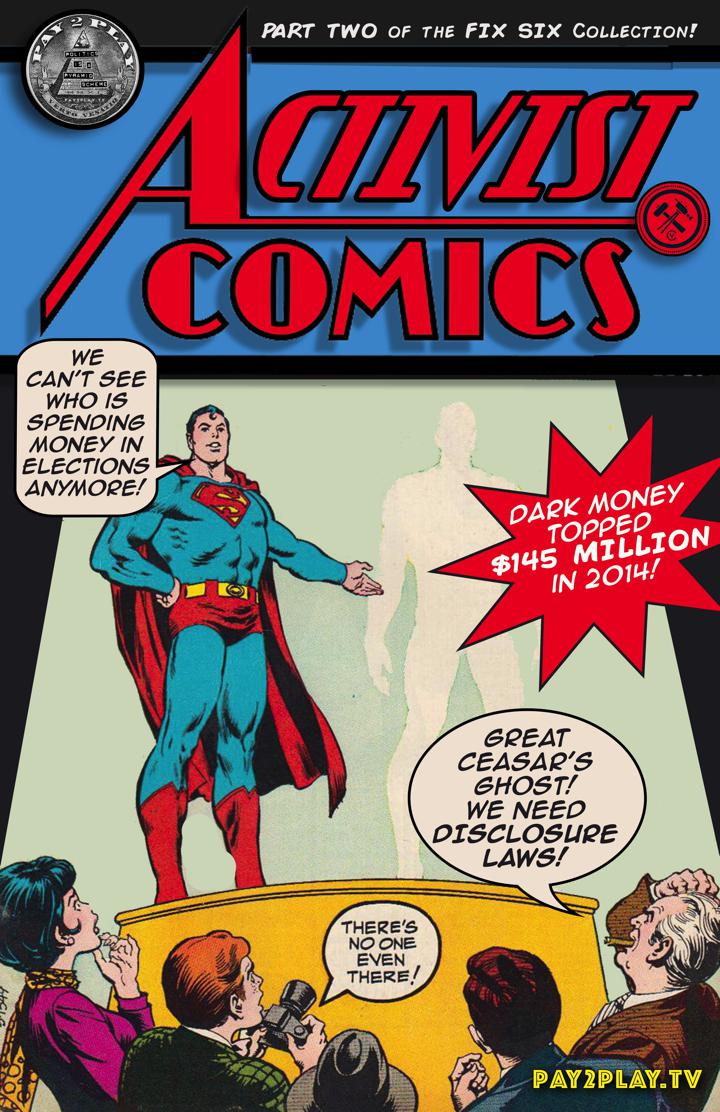DISCLOSURE OF CAMPAIGN CONTRIBUTIONS
PEOPLE POWER PROGRESS UPDATES
One million Americans have called for President Obama to issue an executive order forcing government contractors to reveal their political spending. This forced an official response from the White House, who is reportedly actively considering signing the order.
Since 2010, at least 23 states have enacted disclosure rules to ensure our right to know the big donors trying to influence our elections.
In July 2015, a federal appeals court upheld Delaware's tight political disclosure laws.
In September 2015, California's campaign finance watchdog passed a new rule requiring nonprofits that spend in California's elections to disclose their donors.
In June 2016, Austin City Council just passed one of the strongest campaign finance disclosure laws in the country.
WE need to know who’s making the donations that put candidates in office so we can make educated choices about who the candidates are and who they will be accountable to. Will they listen to you the voter, or to corporate lobbyists?
BILLS BEFORE CONGRESS
DISCLOSE Act: (S 229/HR 430)
Establishes a system of disclosure of campaign spending and the sources of those funds for all entities that make independent expenditures (at any time) and electioneering communications (in calendar year of an election for Congress; 120 days before the primary for presidential elections). Key sponsors: Sen. Whitehouse/Rep. Van Hollen.
Shareholder Protection Act: (S. 214/HR 446)
Requires corporations to disclose to shareholders and the public spending of funds for independent expenditures and electioneering communications, even if such spending is indirectly done through a third party. Key sponsors: Sen. Menendez/Rep. Capuano.
Sunlight for Unaccountable Nonprofits Act (SUN Act): (S. 367/HR 2695)
Mandates that nonprofit organizations that declares making campaign expenditures to disclose all donors of $5,000 or more. Key sponsor: Sen. Tester.
Real Time Transparency Act: (S 2207/HR 4442 in 2013 – not reintroduced yet)
Requires all political committees, including joint fundraising committees, to disclose electronically within 48 hours all cumulative contributions of $1,000 or more in a calendar year. Key sponsors: Sen. King/Rep. O’Rourke.
ACTION STEP 1: Ask the SEC to require DISCLOSURE
Publicly traded companies should be required to disclose their political donations to the Securities and Exchange Commission (SEC):
Public Citizen is working to get the SEC to require corporations to DISCLOSE their political spending
HR 4010 (Van Hollen) Already has over 165 Cosponsors
ACTION STEP 2: Sign the petition to Vanguard for disclosure
Corporations are spending investors’ money and retirement accounts -- maybe even YOURS -- to influence elections and lawmakers. There is a petition to the largest mutual fund investor to get them to change their votes for disclosure.
ACTION STEP 3: Sign Common Cause's petition to the FCC to require on-air disclosure
ACTION STEP 4: Write the FCC demanding they enforce compliance
We have good laws that aren’t being enforced:
The FCC (Federal Communications Commission) should enforce the rules for all political ads, requiring that ads CLEARLY state who the main funders for TV are. Common Cause, Sunlight Foundation and Campaign Legal Center lead the fight.
Members of Congress ask the FCC to do it's job.
CITY LEVEL
Tallahassee passed an ethics law this November.
Compared to 2013
STATE LEVEL
States are fighting for disclosure of Dark Money donated for campaign ads.
Leading up to the 2014 midterm elections, California, Delaware, Massachusetts, Hawaii, Vermont and North Carolina passed tough new disclosure laws
Find out how your state is doing by reading the scorecard from Follow The Money
* There has been an enormous amount of progress on disclosure recently
(except for WI which went from an A to an F)
MAP of 2014 Scorecard



